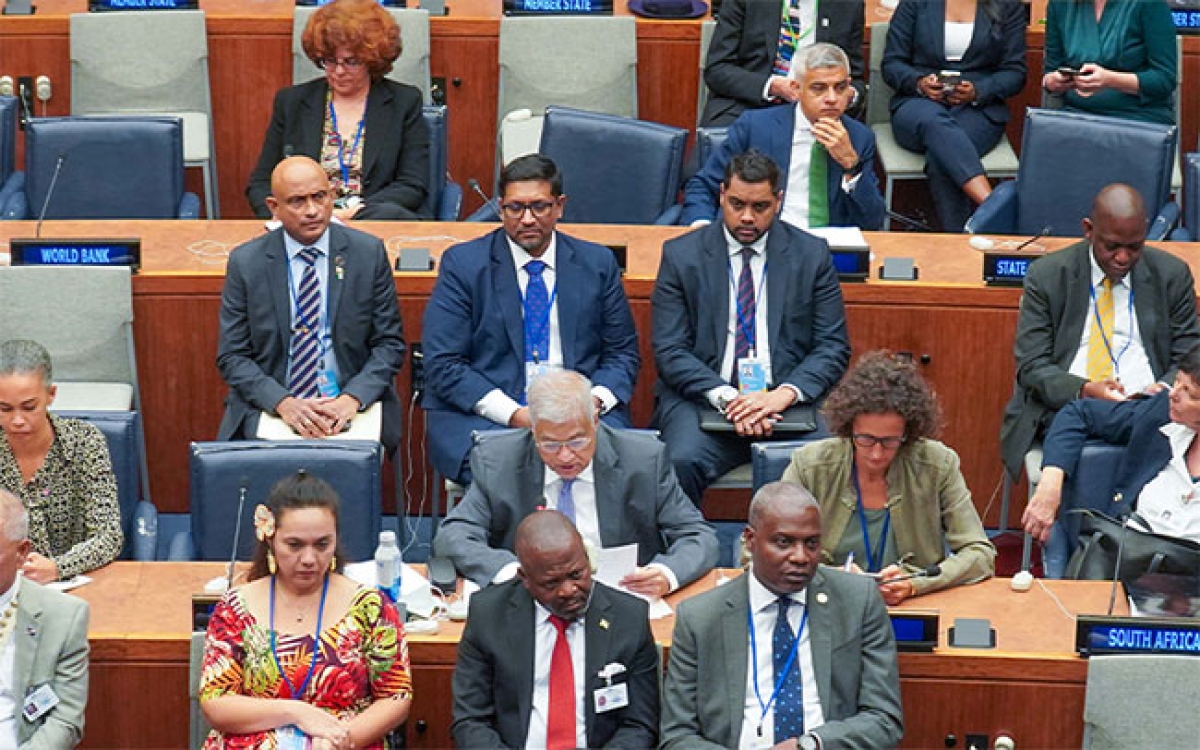President Ranil Wickremesinghe delivered an address at the Climate Ambition Summit held on the sidelines of the UN General Assembly, shedding light on Sri Lanka's multifaceted approach to tackle climate change and promote economic growth.
The President emphasized the severe economic consequences that climate-related issues could pose, with experts predicting a potential 1.5% GDP loss for Sri Lanka by 2050.
Sri Lanka's strategy encompasses two key pillars:
-
Climate Prosperity Plan: At COP 27, President Wickremesinghe introduced the Climate Prosperity Plan, a visionary strategy aimed at driving green growth. This plan hinges on substantial investment in renewable energy generation, capitalizing on Sri Lanka's abundant wind and solar energy potential. This initiative aligns seamlessly with the nation's broader economic restructuring agenda following the financial crisis of 2022, demonstrating Sri Lanka's commitment to transitioning towards a sustainable green economy.
-
Climate Justice Forum: Sri Lanka is actively supporting the establishment of a climate justice forum. This international platform seeks to foster collaboration on a global scale to address various climate challenges, encompassing issues related to loss and damage, adaptation, and mitigation. It underscores Sri Lanka's commitment to playing a pivotal role in addressing climate issues at the international level.
In addition to these core initiatives, Sri Lanka is proactively proposing two crucial measures on the global stage:
-
International Climate Change University: President Wickremesinghe suggested the establishment of an international climate change university. Designed to serve as a global hub for research and development focused on climate mitigation actions, this institution would play a pivotal role in advancing climate solutions worldwide.
-
Tropical Belt Climate Ambition Project: Recognizing the importance of responsible resource management, Sri Lanka is focusing its efforts on high-impact areas. The Tropical Belt Climate Ambition Project concentrates on the biodiverse tropical belt region, where the country aims to make a substantial difference in combating climate change.










